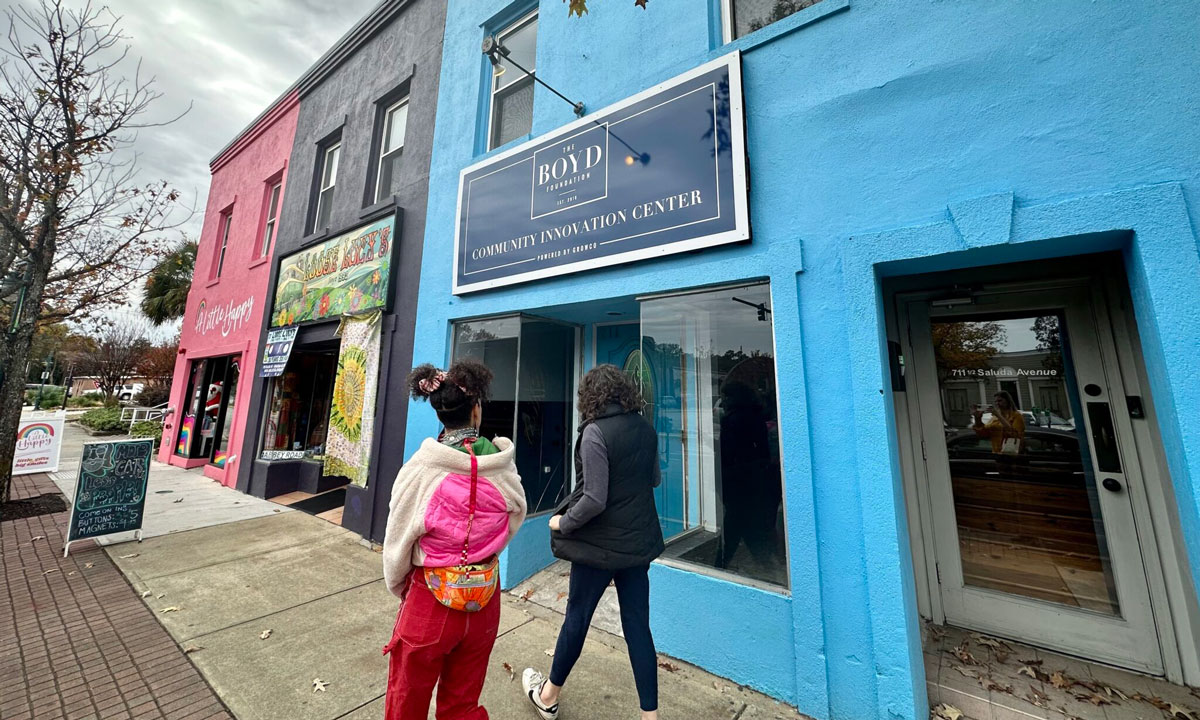Inside the $15 Million Push to Better Train SC Students on Supercomputers
Workforce initiative seeks to give SC college students edge over other graduates in race for high-tech jobs.

Get stories like this delivered straight to your inbox. Sign up for The 74 Newsletter
COLUMBIA – A state-funded initiative to train South Carolina college students on a quantum supercomputer for future high-tech, high-paying jobs kicks into gear in January.
The newly formed South Carolina Quantum Association will start pairing students and professors with companies seeking industry advancements that only a quantum computer can provide, according to the group’s organizer, Joe Queenan.
The nonprofit is funded through a $15 million earmark in the state budget. The initial millions spent will pay for quantum consultants to coach students each semester through spring 2025, starting at the University of South Carolina before expanding to other colleges. It will also pay to rent time on a quantum computer housed at the University of Maryland but accessed through a web portal in the nonprofit’s office in Columbia’s Five Points.
Because the technology is new, there are few experts in the field.
The association’s goal is to make South Carolina students specialists of this next-era technology through hands-on training before they graduate.
The hope is that a concentration of such experts in the Palmetto State could, in turn, lure more companies here to take advantage of the trained workforce stepping out of the state’s public and private universities.
“If we can train a generation on the skills needed, they’re going to be sought after by every entity in the world at a great salary,” state Sen. Dick Harpootlian told the SC Daily Gazette.
That’s why the Columbia Democrat lobbied for the state dollars. He wants to make the technology, with its complex computing capabilities, widely available through college and workforce training programs.
While classic computers operate under a binary system of 1s and 0s, quantum computing is multidimensional. These computers solve in minutes complex calculations involving vast numbers of data points that would take years using a standard computer.
Some promising uses for the technology include the development of new pharmaceuticals and batteries. Banks are using it to prevent cyber-theft, reduce risky lending, and meet new regulations put in place in the wake of the Great Recession, according to IBM, which has more than 20 quantum computer systems around the world.
For example, to develop a new drug, scientists typically work by trial and error. It’s a long process. Researchers run thousands of tests in hopes that a molecule will be found that can combat a disease. But a quantum computer could run even the most complex simulations to determine how subatomic particles that make up a molecule interact. The same is true for scientists searching for new materials for batteries that would make them charge faster and hold more power.
In Silicon Valley, Mercedes-Benz is partnering with IBM to test how sulphur molecules behave in different environments, with the goal of replacing lithium-ion batteries. And Boeing recently gave $3.5 million to a Chicago-based quantum group to study quantum-enabled sensors.
Congress has funneled at least $3.7 billion to quantum research hubs across the country since 2019.
The same entrepreneurial leaders behind Columbia’s GrowCo organization, a conglomeration of technology startups that want to increase the number of high-tech companies in the Capital City, are leading the SC Quantum Association.
‘An open race’
The non-profit wants to get South Carolina in the game, alongside early adopters in more established quantum clusters such as Chicago, New York, Washington, D.C., and Boulder, Colorado. Its leaders also want to leverage the state money to win more federal dollars.
“We can be world-renowned for what we do here,” Harpootlian said. “The question is, are we going to be last in the country or are we going to be the first.”
Webbed partnerships already have sprung up around several national laboratories studying the technology, signing on Ivy League giants such as Harvard and Yale, renowned technology schools such as MIT and Virginia Tech, as well as a handful of state schools.
While those places may be ahead in terms of research dollars, Queenan said, the technology is still new and broad enough for South Carolina to distinguish itself by starting now.
“It’s still an open race but it’s going to take highly skilled workers,” he said.
The fast pace of the technology’s development means demand for experts in the field is outpacing the availability of talent. The quantum association wants South Carolinians to fill that niche.
Harpootlian, whose district includes USC and Five Points, wants to reverse what he calls the “exodus of our best and brightest” and make South Carolina a technological center.
“What we see is, the kids who want to develop skills in technology, they leave,” he said.
This wasn’t his first attempt to land a quantum computer initiative in Five Points, though he did recraft his request to win more support.
Last year, Harpootlian got a $25 million earmark in the budget to buy a quantum computer. But Gov. Henry McMaster vetoed the spending, and legislators in the House agreed with that line-item veto.
McMaster did not veto the cheaper option of renting the time.
Later phases of the state-funded initiative involve designing a quantum computing specialty degree program that colleges across the state could replicate. At least one of those will be offered at a historically Black college in South Carolina. Organizers also want to launch an online training academy for workers looking to transfer into a high-tech career.
SC Daily Gazette is part of States Newsroom, a nonprofit news network supported by grants and a coalition of donors as a 501c(3) public charity. SC Daily Gazette maintains editorial independence. Contact Editor Seanna Adcox for questions: info@scdailygazette.com. Follow SC Daily Gazette on Facebook and Twitter.
Get stories like these delivered straight to your inbox. Sign up for The 74 Newsletter

;)